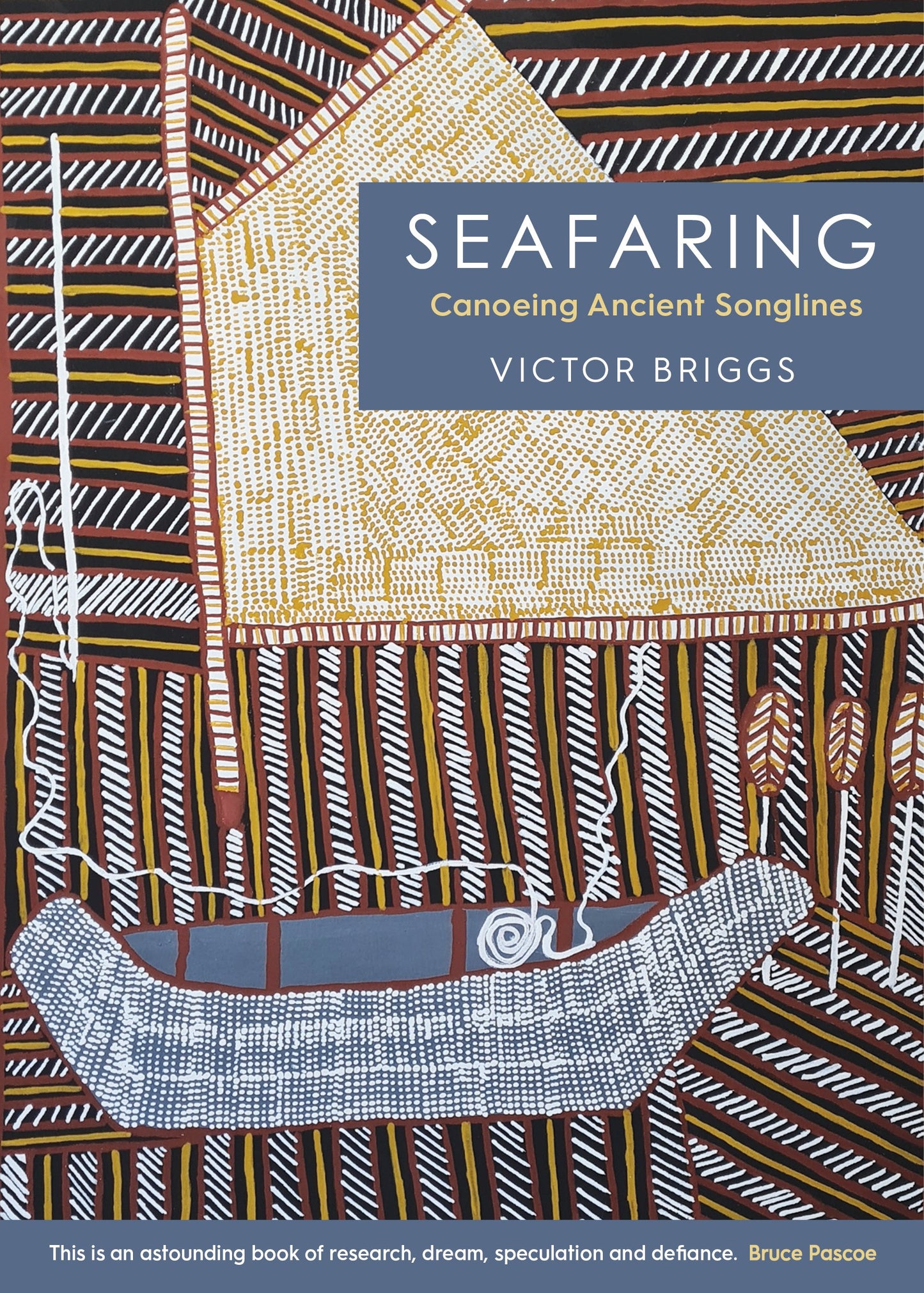Victor Briggs
Seafaring
Seafaring
Couldn't load pickup availability
Lindsay's Review
Victor Briggs’ new book, Seafaring, seeks to extend our understanding of Indigenous Australian knowledge about long- distance travel across the oceans. Like Bruce Pascoe’s well-known book Dark Emu, Seafaring is intent on raising awareness about the sophistication of Aboriginal culture; and it wouldn’t surprise me if Briggs’ account sparks a similar level of debate, even some polemical backlash. He explores the relevance of traditional oral knowledge by interweaving his meticulous academic investigation with his personal narrative, cultural perspective and spiritual Dreamtime connection. In the process, he convincingly shows how ethnological accounts provide evidence of the close trade and cultural connections between Aboriginal and Torres Strait Islanders over many millenia.
The driving force behind Briggs’ research, which begins with his Uncle Tim’s story of a Hawaiian Elder’s oral history of a visit by Aboriginal sailors, will come as a surprise to many people. What Briggs makes clear is that Aboriginal people had both the means to build the large ocean crossing dugout canoes - similar to those of their Papuan and Melanesian neighbours - and the navigational knowledge, residing in their celestial Songlines, that allowed them to cross the Pacific Ocean and to island hop at will. The book looks closely at the important questions that have been dismissed on grounds we now recognise are illogical if not ludicrous: dismissals based on a Western cultural bias towards the validity of indigenous knowledge and the forms in which information is communicated. Briggs has certainly raised the bar to a new level with his smooth bridging between European and Aboriginal worldviews, while making the story of Indigenous seafaring highly accessible. The first Australians were ocean-crossing people, and their skills, although largely unseen or unacknowledged by European commentators, were never lost.
This is a thoroughly researched, well written and personal account that should be read by all Australians. This book shines a new light on the complexity of Aboriginal and Torres Strait Islander culture without becoming caught in the quicksand of land rights politics. His book will ultimately provide a new perspective on many other misunderstood aspects of traditional Indigenous culture. Briggs has stated that his ancestors wanted him to take this journey, and I have no doubt that his story will benefit us all. A joyful, uplifting read.
Publisher's Review
'For various reasons, this story cannot be proven. But that does not matter to me because in my Aboriginal way of being and knowing, stories like my uncle's do not need modern scientific proof to have validity - the role of story in Indigenous community is key to all aspects of our Culture.'
A long time ago Indigenous Australian seafarers sailed to Hawaii on the trade winds. When they got there they exchanged skills, information and technology.
A story told to his uncle by an Indigenous Hawaiian elder would change the shape of Gumbaynggirr/Gamilaroi man Victor Briggs' life, and send him on a search for answers to the question: were Indigenous Australians master navigators of one of the world's largest oceans, the South Pacific? Is this yet another example of suppression of the past in colonial history?
Bringing voice to his ancestors and the power of oral storytelling, Victor shares his compelling journey into the past through research, stories and visions.
This seed of an idea is crying out for further research about the world's largest ocean and its Indigenous trading networks.
'This is an astounding book of research, dream, speculation and defiance. It shines an audacious light on the history of this country...and the world.' - Bruce Pascoe
Share


